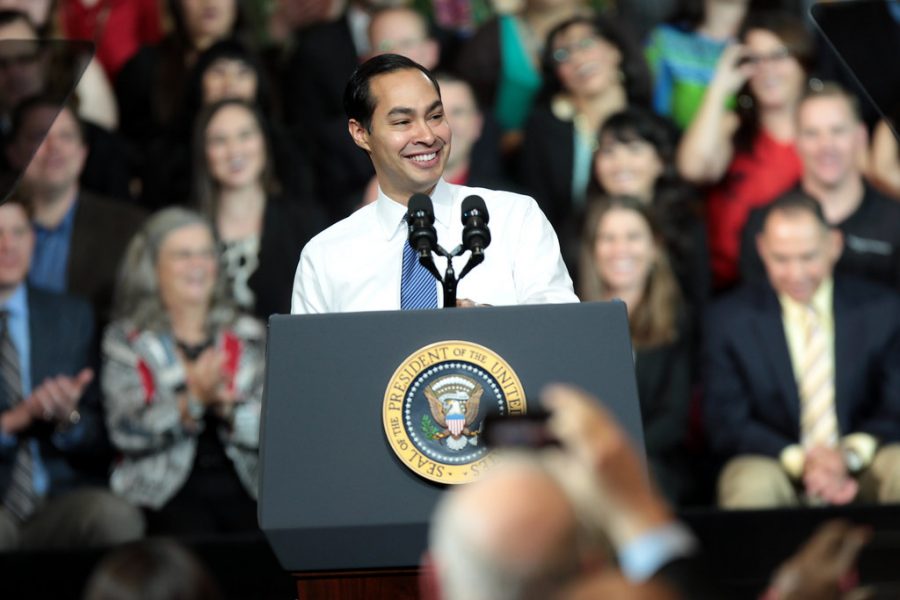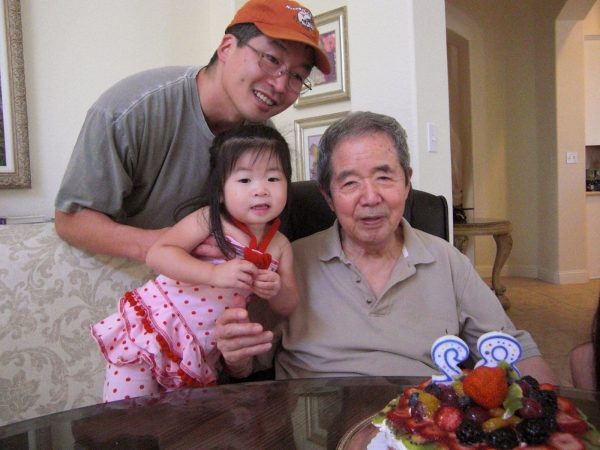Julián Castro leaves 2020 race
When I first wrote my political column headlined, “Julián Castro, a champion of immigrant rights,” six months ago, I was sure that the San Antonio native was destined for greatness. And he was, up until last Thursday when he dropped out of the presidential race.
Well, that’s an exaggeration. The decline of Castro’s campaign really began when he failed to meet the criteria to qualify for the November debate — a scenario that he had stated just weeks earlier would end his campaign immediately. He did not leave immediately, however, and stuck around perhaps in hopes of qualifying for the December debate, which he did not. This was due to the 4% polling average needed to make the stage.
While Castro did not survive very long in the Democratic candidate field, his campaign outlived Kamala Harris’ and his Texan rival Beto O’Rourke’s.
In his candidacy, he focused on promoting Latino ideals and other underrepresented candidates. He was the first candidate to lay out a comprehensive immigration plan, which included changing border crossing from a criminal to a civil offense and imposing a 21st Century Marshall Plan on Central America.
A major talking point for Castro’s fight against unfair immigration laws was his proposed repeal of Section 1325 of the Immigration and Nationality Act. This section allows the government to arrest people crossing the border under a criminal offense. During the first Democratic debate, Castro challenged O’Rourke on why he had yet to support his repeal of the section. O’Rourke argued that a repeal of this section would undermine the fight against drug and human trafficking. However, many labeled Castro as the true winner of this argument and allowed him to gain traction in the polls and win over more voters.
Castro did face some heat after the third debate where he called Joe Biden out for his memory loss, an act that many labeled as ageism. Castro refused to apologize for his outburst, making it clear that he did not believe Biden capable of effectively leading the country. This is perhaps ultimately why he failed to qualify for the fourth debate, leading to his ultimate resignation.
Castro now leaves the Democratic field at a count of 14 candidates, 10 of whom are white. This is a startling fact, considering that the field in the summer was the most diverse it had ever been. This is due to the fact that the field was also the largest it had ever been. However, the now almost homogeneous skin color of the candidates is concerning. If everyone on the stage is white, who will be able to fairly and accurately represent the minorities in our country? Elizabeth Warren is surely capable of spreading the story of anyone and everyone she meets, but she cannot fully understand the prejudice they feel and the troubles they face.
Castro came from a household of activism. His mother was a leader of the Chicano movement in his hometown of San Antonio and helped to guide both Julián and his brother Joaquin to reach their own political aspirations. This cultivation of politicalness is most likely what led Julián Castro to be labeled as a “policy pacesetter” by The New York Times. He knew his end-goal from the very beginning and created the policy to support it.
While Castro has been increasingly forgotten after being wedged out of the public eye by bigger-name candidates, his resignation from the 2020 race led me to reflect on his overall success. Maybe, just maybe, we’ll see him again in 2024.
Thank you for reading and, as always, feel free to leave your thoughts, comments and questions down below.






